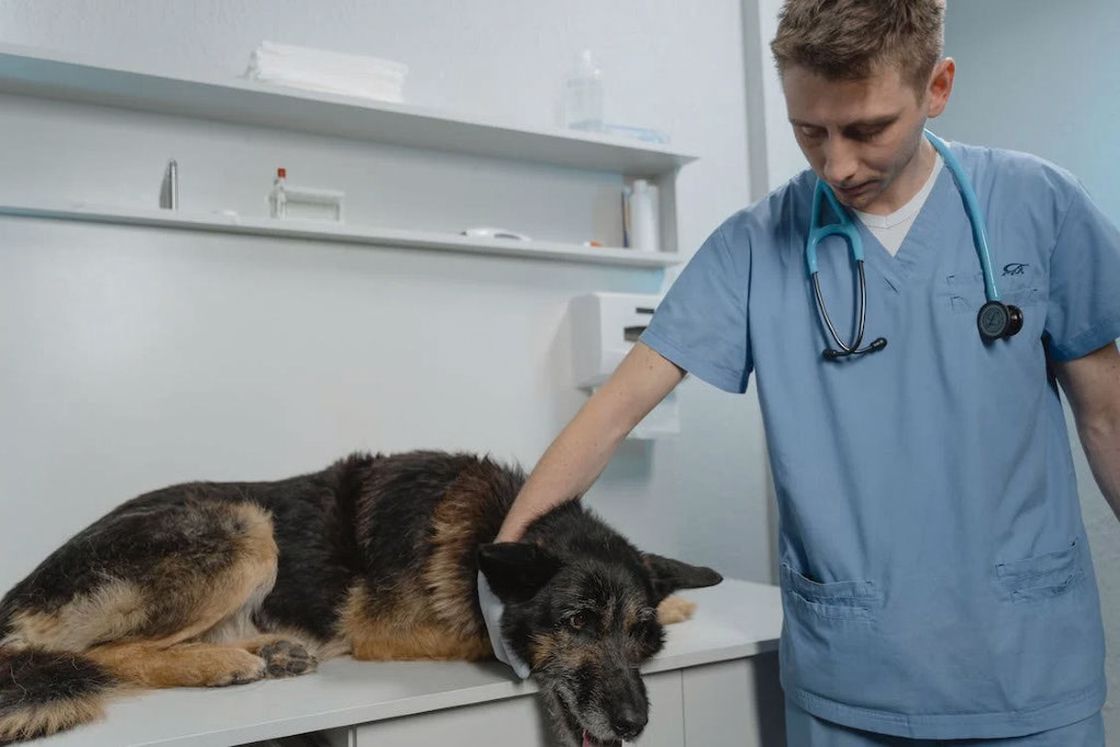10 Signs Your Dog Might Need Hospice Care Services

As our furry companions’ age or face serious health challenges, their care needs evolve. Hospice care for dogs is a compassionate approach designed to improve the quality of life for pets who are terminally ill. Recognizing when your dog might need hospice care can be challenging. But, understanding the key signs can help you ensure they receive the support and comfort they need. Here are some critical indicators that your dog might benefit from hospice care:
-
Persistent Pain or Discomfort
One of the most significant signs that your dog might need hospice care is persistent pain or discomfort. If your dog seems to be in constant pain despite medication or treatment, it’s essential to consider dog hospice care services. Watch for signs such as difficulty moving, whining, or reluctance to engage in activities they once enjoyed. Hospice care focuses on effective pain management and comfort measures, tailoring interventions to your dog’s specific needs.
-
Decreased Mobility
A noticeable decline in your dog’s mobility can signal advanced disease or deteriorating health. If your dog struggles to stand, walk, or climb stairs, this could be an indication that their condition has worsened. Hospice care can provide physical support, including mobility aids and assistance with daily activities. This care approach helps ensure that your dog remains as comfortable and functional as possible during this challenging time.
-
Loss of Appetite
Changes in eating habits are often a red flag for health issues. If your dog exhibits a significant loss of appetite or refuses to eat, it may be a sign of declining health. Hospice care addresses nutritional needs by offering specialized diets and supplements to maintain your dog’s nourishment and hydration. Tailoring the approach to their preferences and needs can make a significant difference in their comfort and well-being.
-
Difficulty Breathing
Respiratory distress is a serious concern and can indicate advanced health problems. If your dog shows signs of labored or irregular breathing, it is crucial to seek support. Hospice care can provide interventions to ease breathing difficulties, such as administering medications or adjusting their environment to improve air quality. Ensuring that your dog can breathe comfortably is a key aspect of hospice care.
-
Weight Loss or Muscle Wasting
Unexplained weight loss or muscle wasting is often associated with severe health issues. If you notice that your dog is losing weight or experiencing muscle deterioration, it may be time to consider hospice care. This type of care includes managing symptoms associated with these conditions, providing support for maintaining body weight, and implementing strategies to prevent further muscle loss.
-
Behavioral Changes
Behavioral changes can be a significant indicator of your dog’s declining health. If your dog becomes increasingly lethargic, withdrawn from interactions, or displays unusual aggression, these changes may signal that they are struggling. Hospice care addresses behavioral issues by creating a calming and supportive environment, helping to alleviate stress and ensure your dog feels secure and comfortable.
-
Incontinence or Difficulty Controlling Bowels
Loss of control over bowel or bladder functions can be distressing for both your dog and you. If your dog is experiencing incontinence or difficulty controlling their bowels, hospice care can offer solutions to manage these issues. This may include specialized bedding, frequent cleaning, and hygiene care to keep your dog comfortable and maintain their dignity.
-
Frequent Vomiting or Diarrhea
Ongoing gastrointestinal problems, such as frequent vomiting or diarrhea, can be indicative of advanced health conditions. If your dog is struggling with these issues, hospice veterinarian can provide support and treatment to manage symptoms and improve their comfort. This may involve adjusting their diet, administering medications, or implementing other interventions to address their gastrointestinal distress.
-
Changes in Sleep Patterns
Significant changes in your dog’s sleep patterns, such as increased sleep or difficulty resting, can be a sign of health decline. Hospice care aims to manage discomfort that may be affecting your dog’s ability to sleep peacefully. By addressing underlying issues and providing supportive care, hospice services help ensure that your dog can rest comfortably.
-
Diagnosis of Terminal Illness
A terminal illness diagnosis is a clear indicator that your dog might need hospice care. If your dog has been diagnosed with a condition that is incurable or in its final stages, hospice care can offer essential support. This care approach focuses on managing symptoms, providing comfort, and enhancing the quality of life in the time remaining.
Conclusion
Recognizing the signs that your dog might need hospice care is a crucial step in ensuring they receive compassionate and appropriate support. Hospice care aims to provide comfort, pain relief, and quality of life during a pet’s final days. By understanding these indicators and seeking specialized care, you can help your beloved companion navigate this challenging time with dignity and love. Consulting with a veterinarian who specializes in hospice or palliative care can guide you in making informed decisions and providing the best possible care for your dog.











